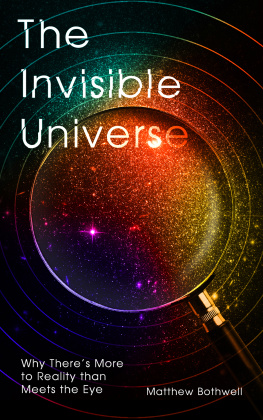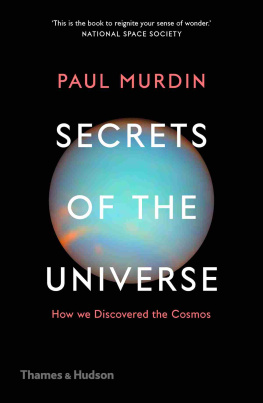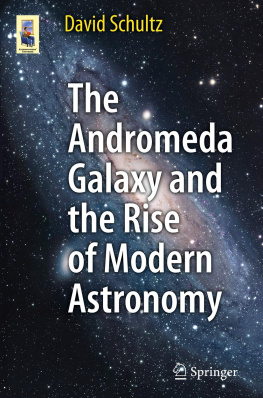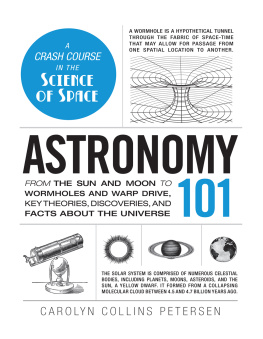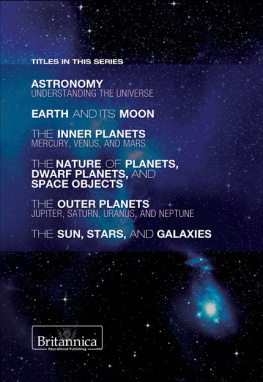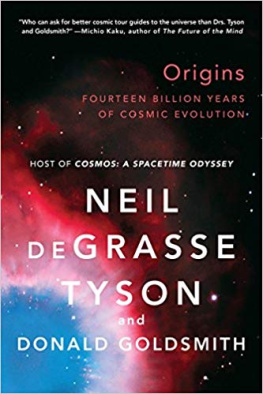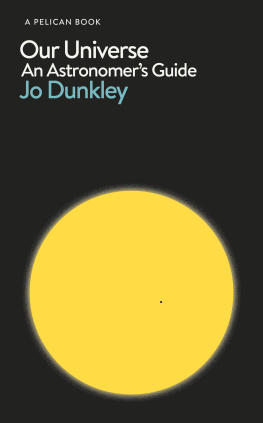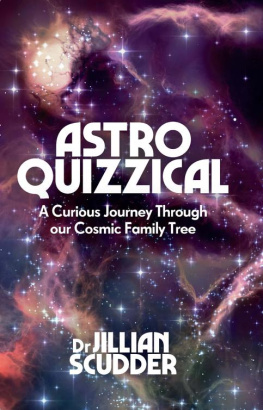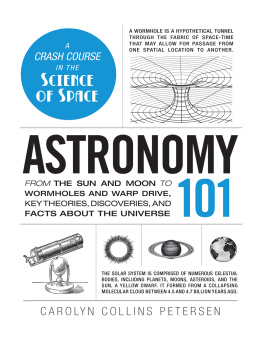Contents
Guide
Astronomy
A Beginners Guide
ONEWORLD BEGINNERS GUIDES combine an original, inventive, and engaging approach with expert analysis on subjects ranging from art and history to religion and politics, and everything in-between. Innovative and affordable, books in the series are perfect for anyone curious about the way the world works and the big ideas of our time.
aesthetics | the enlightenment | the new testament |
africa | epistemology | nietzsche |
american politics | ethics | nineteenth-century art |
anarchism | the european union | the northern ireland conflict |
ancient philosophy | evolution | nutrition |
animal behaviour | evolutionary psychology | oil |
anthropology | existentialism | opera |
anti-capitalism | fair trade | the palestineisraeli conflict |
aquinas | feminism | parapsychology |
archaeology | forensic science | particle physics |
art | french literature | paul |
artificial intelligence | the french revolution | philosophy |
the bahai faith | genetics | philosophy of mind |
the beat generation | global terrorism | philosophy of religion |
the bible | hinduism | philosophy of science |
biodiversity | history | planet earth |
bioterror & biowarfare | the history of medicine | populism |
the brain | history of science | postmodernism |
british politics | homer | psychology |
the Buddha | humanism | quantum physics |
cancer | huxley | the quran |
censorship | imperial china | racism |
christianity | international relations | rawls |
civil liberties | iran | reductionism |
classical music | islamic philosophy | religion |
climate change | the islamic veil | renaissance art |
cloning | jazz | the roman empire |
the cold war | jesus | the russian revolution |
conservation | journalism | shakespeare |
crimes against humanity | judaism | shii islam |
criminal psychology | justice | the small arms trade |
critical thinking | lacan | stalin |
the crusades | life in the universe | sufism |
daoism | literary theory | the torah |
democracy | machiavelli | the united nations |
descartes | mafia & organized crime | the victorians |
dewey | magic | volcanoes |
dyslexia | marx | war |
economics | medieval philosophy | the world trade organization |
energy | the middle east | world war II |
engineering | modern slavery |
the english civil wars | NATO |

Astronomy
A Beginners Guide
William H. Waller

Dedicated to Paul W. Hodge (19342019)
Gentle mentor, colleague, and friend
Contents
Preface
I started writing this book while nestled high up in the control room of the Mayall four-meter telescope atop Kitt Peak National Observatory in southern Arizona. My observing run was turning out to be more terrestrial than celestial, with several rainy nights followed by a stubborn fog and topped off by a fierce windstorm. Fortunately for me, I was not alone in my nighttime vigils. A longtime colleague from my graduate student days and a rising graduate student had joined me. Already, the grad student had proved her superiority in working the computer interface, leaving the two of us veteran astronomers in the dust. As we fussed over our observing plan and shared our most colorful stories and YouTube videos, I could feel a direct connection with the many intrepid astronomers who had paved the way for us.
Four centuries before that ill-fated observing run, the Italian mathematician Galileo Galilei was pioneering the use of optical telescopes for astronomical studies. Using spyglasses of his own creation, Galileo perceived celestial wonders of profound consequence. From mountains on the Moon to spots on the Sun, apparitions of Venus that varied in phase and size, tiny moons in orbit around Jupiter, and the Milky Way resolved into countless stars, Galileos observations irrevocably upended our Earth-bound perspective of the Universe.
At around the same time, the German mathematician, astronomer, and astrologer Johannes Kepler was analyzing the finest naked-eye observations ever made of planetary positions and motions. Building on the heliocentric planetary system of Nicolaus Copernicus, Kepler had crafted a mathematical model whereby the six known planets (Mercury, Venus, Earth, Mars, Jupiter, and Saturn) traveled in circular orbits around the Sun. To Kepler, the relative spacing of these orbits was constrained by the mathematics of alternately nested polyhedrons and spheres of crystalline composition. He imagined that the rubbing of the polygons against the spheres would produce a music of divine import. Alas, his music of the spheres concept ran counter to his own careful analysis of the observed motion of Mars across the sky. Abandoning his exquisite model, Kepler let Mars travel in a slightly elliptical trajectory that sped up when nearest the Sun and slowed when farthest away. His resulting three laws of planetary motion and Isaac Newtons subsequent explanation based on the concept of universal gravitation epitomize how hard-won truths can emerge from the crucible of meticulous observations, imaginative analysis, and due diligence.
Through the dedication and genius of Galileo, Kepler, Newton, Herschel, Leavitt, Shapley, Payne-Gaposhkin, Hubble, and many other astronomers, we can today behold a truly wondrous Universe as vast, rich, and transformative as one could ever imagine. The story continues, of course, with new discoveries often coming at breakneck speed. In writing this book, I have not tried to present an updated compendium of all that has been discovered. Instead, I have tried to provide a true beginners guide to the content, structure, birth, and continuing evolution of the Universe. This has meant glossing over many worthwhile topics for the sake of maintaining some semblance of coherence. I have also interjected some personal reflections that may help to provide some human relief to what is otherwise a far-reaching cosmic narrative. If some of these ruminations betray me as a bit of a blowhard, so be it. Among astronomers, I would not be alone.


